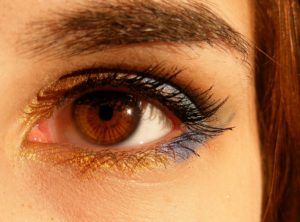Many of you will have watched the BBC health documentary about getting more sleep. It was another report by health author Dr Michael Mosely and for many people a lot of the information wasn’t particularly new, however, it was probably a great reminder of our need to sleep more. The interesting part for me and many others was the suggestion that gut bacteria and the eating of a pre biotics could positively help your sleep. In fact, Mosely himself tried the suggestion over the course of a couple of weeks and noticed a significant improvement in his sleep quality.
What I wanted to do in this article was explore the idea in more depth and discuss both the science and the research behind the findings on the BBC show. I started off by looking at what exactly pre biotics are and how they differ from pro biotics. Pre biotics are broadly defined as the food that pro biotics feed on. Pro biotics are the various strains of bacteria in our gut. This gut bacteria, or micro flora, reside in a healthy gut and form a symbiotic relationship with us that keeps us healthy. Pre biotics, which are generally found in plant foods, are digested by the probiotics which helps them thrive. Short chain fatty acids such as butyric acid and acetic acid are formed during the fermentation of these pre biotics and are released into the gut lumen. Several studies have identified a relationship between levels of butyric acid in the colon and incidence of colon cancer. It appears that higher levels of buytrate are associated with lower levels of colon cancer.
But how does this help our sleep? Well one theory is that the energy produced by the short chain fatty acids can be used at night which off sets any blood sugar issues and can lead to a more restful nights sleep. Short chain fatty acids, particularly butyrate also modulate the immune sytem and can control inflammation. In fact, specific cytokines have been shown in studies to specifically effect the stage of sleep called non rapid eye movement sleep (nREM sleep) which are the 4 main stages in which we sleep.
Through these two mechanisms, it appears that taking pre biotics as a supplement can in fact have a positive effect on how we sleep. I’m sure over the next few years, research will shed light on the full effect of both pre biotics and pro biotics on human health including the positive effect on sleep.

 Free radicals are everywhere and we produce them in our own bodies. They are toxic and can often lead to diseases such as cancer. Melatonin helps to neutralize free radicals and is the most powerful neutralizer of hydroxyl radicals ever detected. Melatonin is a powerful antioxidant and can therefore help reduce the risks associated with heart disease and cancer. Both of these diseases are considered conditions of aging and melatonin production declines with age which may go some way to explaining its benefit.
Free radicals are everywhere and we produce them in our own bodies. They are toxic and can often lead to diseases such as cancer. Melatonin helps to neutralize free radicals and is the most powerful neutralizer of hydroxyl radicals ever detected. Melatonin is a powerful antioxidant and can therefore help reduce the risks associated with heart disease and cancer. Both of these diseases are considered conditions of aging and melatonin production declines with age which may go some way to explaining its benefit.